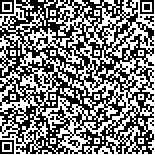| Quote
: |
何龙,何可,严杰.“益气调血、醒脑通络”药线灸疗法治疗缺血性脑卒中患者运动功能障碍的临床研究[J].湖南中医药大学学报英文版,2019,39(8):971-976.[Click to copy
] |
|
| |
|
|
| This paper
:Browser 3188times Download 2091times |
| “益气调血、醒脑通络”药线灸疗法治疗缺血性脑卒中患者运动功能障碍的临床研究 |
| 何龙,何可,严杰 |
| (湖南中医药高等专科学校附属第一医院针灸科, 湖南 株洲 412000;湖南中医药大学第二附属医院, 湖南 长沙 410000) |
| 摘要: |
| 目的 探讨"益气调血、醒脑通络"药线灸疗法治疗缺血性脑卒中患者运动功能障碍的疗效,观察治疗前后患者外周血中Keap1-核因子E2相关因子(NF-E2-related factor 2,Nrf2)/抗氧化反应元件(antioxidant response element, ARE)通路功能的变化情况,为提高该病的疗效提供新思路。方法 选取本院2017年1月至2018年1月收治的92例缺血性脑卒中运动功能障碍患者作为观察对象,按照患者入院先后分为对照组与研究组,每组46例。对照组给予运动康复治疗,研究组在此基础上给予"益气调血、醒脑通络"药线灸疗法治疗,对比两组疗效、治疗前后运动功能、平衡功能、外周血中Keap1-Nrf2/ARE通路分子、抗氧化酶指标、血清神经损害标志物、氧化应激产物变化情况。结果 研究组治疗总有效率为89.13%,高于对照组的71.74%(P<0.05);治疗后两组Fugl-Meyer评分、Berg评分均高于治疗前(P<0.05),且研究组高于对照组(P<0.05);治疗后研究组Keap1 mRNA较治疗前升高(P<0.05),Nrf2、ARE mRNA较治疗前下降(P<0.05),且与对照组比较差异均有统计学意义(P<0.05);治疗后两组外周血抗氧化酶相关指标表达量均高于治疗前(P<0.05),且研究组高于对照组(P<0.05);治疗后两组血清神经损害标志物及氧化应激相关指标表达水平均低于治疗前(P<0.05),且研究组低于对照组(P<0.05)。结论 "益气调血、醒脑通络"药线灸疗法可提高缺血性脑卒中患者运动功能障碍运动功能及平衡功能,改善外周血Keap1-Nrf2/ARE通路功能,减轻脑神经损伤,提高抗氧化能力,缓解氧化应激反应,具有较高临床应用价值。 |
| 关键词: 缺血性脑卒中 运动功能障碍 药线灸 康复治疗 Keap1 Nrf2 ARE |
| DOI:10.3969/j.issn.1674-070X.2019.08.010 |
| Received:January 24, 2019 |
| 基金项目:湖南省中医药科研计划项目重点课题(201611)。 |
|
| Clinical Study on “Benefiting Qi and Regulating Blood, Restoring Consciousness and Dredging Collateral” Medicine Line Moxibustion Therapy on Patients with Ischemic Stroke and Motor Dysfunction |
| HE Long,HE Ke,YAN Jie |
| (Department of Acupuncture and Moxibustion, The First Affiliated Hospital of Hunan College of Traditional Chinese Medicine, Zhuzhou, Hunan 412000, China;The Second Affiliated Hospital of Hunan University of Chinese Medicine, Changsha, Hunan 410000, China) |
| Abstract: |
| Objective To investigate the efficacy of "benefiting Qi and regulating blood, restoring consciousness and dredging collateral" medicine line moxibustion therapy in the treatment of patients with ischemic stroke and motor dysfunction, and to observe the changes of Keap1-NF-E2-related factor 2 (Nrf2)/antioxidant response element (ARE) pathway function in peripheral blood of patients before and after treatment, to provide new ideas for improving the efficacy of the disease. Methods A total of 92 patients with ischemic stroke and motor dysfunction admitted to The First Affiliated Hospital of Hunan University of Traditional Chinese Medicine from January 2017 to January 2018 were enrolled. The patients were divided into a control group and a study group according to the order of patient's admission, with 46 cases in each group. The control group was given exercise rehabilitation treatment. On the basis of this, the study group was given the treatment of "benefiting Qi and regulating blood, restoring consciousness and dredging collateral" medicine line moxibustion therapy. The curative effects, the motor function, balance function before and after the treatment, changes in Keap1-Nrf2/ARE pathway molecules, antioxidant enzyme markers, serum neurological damage markers, and oxidative stress products in peripheral blood of the 2 groups were compared. Results The effective rate of the study group was 89.13%, which was higher than 71.74% of the control group (P<0.05). The Fugl-Meyer and Berg scores of the 2 groups were higher than before treatment (P<0.05). The study group was higher than the control group (P<0.05). After treatment, Keap1 mRNA of the study group was increased (P<0.05), and Nrf2 and ARE mRNA were decreased (P<0.05). Compared with the control group, the difference was statistically significant (P<0.05). After treatment, the expression levels of antioxidant enzymes in peripheral blood of the 2 groups were higher than before treatment (P<0.05), and the study group was higher than the control group (P<0.05). After treatment, the expression levels of serum neurological damage markers and oxidative stress related indexes in the 2 groups were lower than before treatment (P<0.05), and the study group was lower than the control group (P<0.05). Conclusion The treatment of "benefiting Qi and regulating blood, restoring consciousness and dredging collateral" medicine line moxibustion therapy can improve the motor function and balance function of patients with ischemic stroke and motor dysfunction, boost the function of Keap1-Nrf2/ARE pathway in peripheral blood, reduce the damage of cranial nerve. It has high clinical value by enhancing antioxidant capacity and relieving oxidative stress. |
| Key words: ischemic stroke motor dysfunction medicine line moxibustion rehabilitation treatment Keap1 Nrf2 ARE |
|

二维码(扫一下试试看!) |
|
|
|
|


